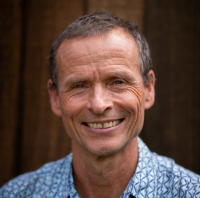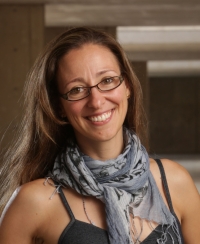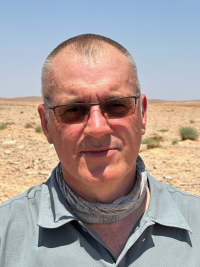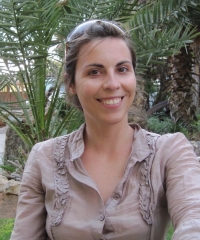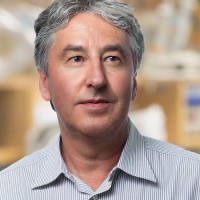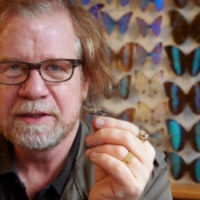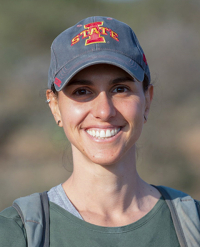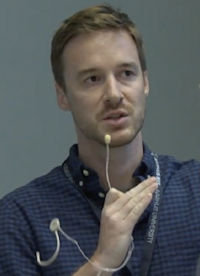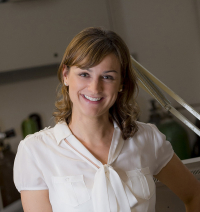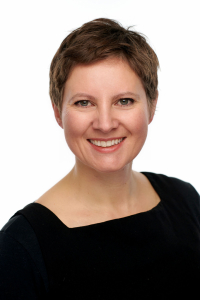Comparative Anthropogeny and Other Approaches to Human Origins
Biographical Sketches: Co-Chairs
UC San Diego
Pascal Gagneux is CARTA's Executive Co-Director, a Professor of Pathology and Anthropology, and the Department Chair of Anthropology at UC San Diego. He is interested in the evolutionary mechanisms responsible for generating and maintaining primate molecular diversity. The Gagneux laboratory studies cell-surface molecules in closely related primates species. His focus is on glycans, the oligosaccharides attached to glycolipids and glycoproteins of the surfaces of every cell and also secreted into the extra-cellular matrix. Gagneux's laboratory is exploring the roles of molecular diversity in protecting populations from pathogens as well as potential consequences for reproductive compatibility. Dr. Gagneux’s interest is in how glycan evolution is shaped by constraints from endogenous biochemistry and exogenous, pathogen-mediated natural selection, but could also have consequences for sexual selection. Dr. Gagneux has studied the behavioral ecology of wild chimpanzees in the Taï Forest, Ivory Coast, population genetics of West African chimpanzees, and differences in sialic acid biology between humans and great apes with special consideration of their differing pathogen regimes. In 2011, while Associate Director of CARTA, Dr. Gagneux helped to establish a graduate specialization in Anthropogeny at UC San Diego. This wholly unique graduate specialization is offered through eight participating graduate programs in the social and natural sciences at UC San Diego.
University of California San Diego
Maria Carolina (Carol) Marchetto is an Assistant Professor at the Anthropology Department, UC San Diego, and serves on the CARTA Internal Advisory Board. Dr. Marchetto earned a BSc in Biological Sciences in 1998 and a Ph.D. in Microbiology in 2005 from the University of Sao Paulo, Brazil. Dr. Marchetto moved to San Diego in 2005 for her postdoctoral research in stem cells and neuroscience in the lab of Dr. Fred Gage at the Salk Institute. Prior to her appointment at UC San Diego, Dr. Marchetto was a Staff Scientist at the Laboratory of Genetics at The Salk Institute where she led projects that studied neuronal development using human and nonhuman primate stem cells. Her current work focuses on using patient-derived induced pluripotent stem cells to study the cellular behavior of human neurons in neuropsychiatric and neurodevelopmental conditions such as Autism and Bipolar Disorder. Dr. Marchetto’s work is also focused on human evolution in the context of human brain expansion and neuronal development. Her innovative approach uses stem cell models from human and nonhuman primate species to test hypotheses about the role of disruptions to human-specific cellular and molecular signatures in development and their potential impact on mental health. She is a BRAINS Program Fellow, and her work has received funding from the National Institutes of Mental Health and the Larry L. Hillblom Foundation.
Biographical Sketches: Speakers
Simon Fraser University
Mark Collard is the Canada Research Chair in Human Evolutionary Studies and a Full Professor in the Department of Archaeology at Simon Fraser University in Burnaby, British Columbia, Canada. After the 1987 Black Monday stock market crash put paid to his career as a private client stockbroker in the City of London, Collard pursued an undergraduate degree in archaeology and prehistory at the University of Sheffield. Subsequently, he completed a Ph.D. in human palaeontology at the University of Liverpool. Since that time, he has taught at universities in the UK, USA, and Canada, and conducted research on a wide range of anthropological topics using the conceptual and analytical tools of evolutionary biology. Among the topics he has worked on are the identification of species in the hominin fossil record; the reconstruction of hominin evolutionary relationships; the estimation of body mass, stature, and age from skeletal material; the processes responsible for the evolution of cultural diversity; the determinants of technological variation among non-industrial populations; and the colonisation of the Americas. Currently, Collard is interested in the evolution of religion, hunter-gatherer mobility, and evolutionary medicine. In addition, he is conducting archaeological fieldwork in Jordan.
University of California Davis
Brenna Henn is a population geneticist in the Department of Anthropology and in the Genome Center at the University of California Davis. She began her research by studying the deep population structure and complex migration patterns of African hunter-gatherer groups. Motivated by her PhD (2009, Stanford University) training in anthropology, she aims to approach questions of genomic and phenotypic diversity from an interdisciplinary standpoint. She continues to primarily focus on African populations. Her field sites include efforts to collect DNA samples, demographic data and biomedical phenotypes in the Kalahari Desert, Cederberg Mountains and the Richtersveld of South Africa, as well as collaborations in Namibia and Ethiopia. The Henn Lab is committed to understanding genetic diversity in under-represented populations. Her long-term objective as an independent investigator is to extend trait mapping and evolutionary genetic techniques to identify loci associated with biomedical traits in diverse populations where collection of large cohort sizes remains challenging.
Salk Institute for Biological Studies
Gerald F. Joyce is President and Professor at the Salk Institute for Biological Studies in La Jolla, California, and a Co-director of CARTA. Dr. Joyce received his BA from the University of Chicago in 1978 and both an MD and PhD from the University of California, San Diego in 1984. He carried out postgraduate medical training at Scripps Mercy Hospital in San Diego and postdoctoral research training at the Salk Institute before joining the faculty of The Scripps Research Institute in 1989. In 2017 Dr. Joyce moved his laboratory to the Salk Institute, where it is part of the Jack H. Skirball Center for Chemical Biology and Proteomics. While continuing his academic faculty appointment, he served as the Institute Director of the Genomics Institute of the Novartis Research Foundation (GNF) from 2014 until 2021. Dr. Joyce’s research involves the test-tube evolution of functional RNA and DNA molecules and their potential application in clinical diagnostics and therapeutics. He has a longstanding interest in the origins of life and the role of RNA in the early history of life on Earth. His research has led to the development of the first self-replicating RNA enzyme, which is capable of exponential growth and evolution. It also has led to the development of an RNA enzyme that catalyzes the polymerization and exponential amplification of other RNA molecules.
Smithsonian Institution, National Museum of Natural History
Mark Moffett is a Research Associate at the Smithsonian whose reseach has focused on the structure of rainforest canopies, social complexity in ants, and the evolution of societies generally. He has spent the last several years studying the organization of societies in humans and other animals while on sabbatical at the National Evolutionary Synthesis Center in Durham, NC. As a Visiting Scholar at the Department of Human Evolutionary Biology at Harvard, Mark worked on a synthesis of how societies stay together and fall apart, across species and in humans right up to the present day. Moffett completed his doctorate at Harvard on the evolution and social organization of an ant species with army ant behaviors under the ecologist Edward O. Wilson. Before that he held a research position at the Museum of Vertebrate Zoology at University of California, Berkeley and spent two years as an assistant curator in charge of the ant collection at Harvard’s Museum of Comparative Zoology. Moffett is a modern-day explorer with more than a little luck on his side, having accidentally sat on the world’s deadliest snake, battled drug lords with dart guns, and scrambled up a tree to escape bull elephants. His most recent book, The Human Swarm: How Our Societies Arise, Thrive and Fall (Basic Books, 2019), ties biology with modern psychology and anthropology with surprising insights. The Human Swarm has been called “a magisterial work of monumental importance” by Scientific American columnist Michael Shermer, while Kevin Kelly, founder of Wired magazine, tells us to “read this manifesto if you like to have your mind changed.”
Iowa State University
Corinna Most is a faculty member in the Department of Ecology, Evolution, and Organismal Biology at Iowa State University. She is also the co-Director of the Uaso Ngiro Baboon Project, in Kenya. She received her Ph.D. in Biological Anthropology with a specialization in Anthropogeny from the University of California San Diego in 2018, under the mentorship of Dr. Shirley Strum. Dr. Most's research program involves two main lines of investigation: 1) the ontogeny of social competence in wild olive baboons (Papio anubis), and 2) the long-term effects of ecological changes on wild olive baboons’ behavior and reproductive parameters. More broadly, she is interested in the origins, evolution, and development of social cognition, and her approach is interdisciplinary, combining theories and methods from anthropology, developmental and comparative psychology, and cognitive sciences. Dr. Most's research provides insights into how our social nature, one of the defining traits of our species and indeed our order, arises both phylogenetically and ontogenetically.
Copenhagen University Hospital
Andrew Schork is a research leader at the Institute for Biological Psychiatry, Copenhagen University Hospital and an Associate Professor at the GLOBE Institute, Copenhagen University. He is a human geneticist interested in the etiology of complex disease, especially psychiatric disorders. The Schork lab combines Danish national healthcare data and other large biobank resources with tools from quantitative genetics to identify, characterize, and deploy genetic risk factors in service of improving our understanding and treatment of psychiatric disorders. This research works to advance study design, analysis, and methods that can make sense of the especially complex, multifactorial, heterogeneous etiology of psychiatric disorders. In particular, these disorders receive small contributions from thousands of genetic variants (i.e., polygenes) and a key research challenge is modeling their joint effect for predictions, to identify disrupted biological processes, and for evolutionary signatures. Schork completed his Ph.D. studies at UC San Diego in 2016 with a degree in Cognitive Science with a Specialization in Anthropogeny, where he was an Annette Merle-Smith CARTA Fellow. He now lives and works in Copenhagen, having grown his research group thanks to generous funding from Lundbeckfonden.
UC San Diego School of Medicine
Tatum Simonson is an Associate Professor and the John B. West Endowed Chair in Respiratory Physiology in the Division of Pulmonary, Critical Care, Sleep Medicine, and Physiology at UC San Diego School of Medicine. Dr. Simonson applies integrative physiological genomics approaches to understand systems-level responses to hypoxia in highland populations. Her research provides evidence for genetic adaptations to high altitude and associations among these factors, molecular functions, and physiological traits. In addition to her research in the highlands of Tibet and Peru, her team studies natural variation in human responses to low oxygen and aims to understand the contributions of genetic and epigenetic factors to variation in hypoxia-related disease states (e.g., altitude illness, sleep apnea, and cardiopulmonary diseases). These and related interdisciplinary efforts are coordinated through the Center for Physiological Genomics of Low Oxygen (CPGLO) at UC San Diego.
Central European University, Vienna
Eva Wittenberg is an Associate Professor in the Department of Cognitive Science at the Central European University in Vienna, Austria. She received her Ph.D. in Linguistics from Potsdam University (Germany), and her postdoctoral training at UC San Diego, where she also held a faculty position before moving to CEU. The aim of Eva's research is to understand the architecture of the language system within broader cognition, asking fundamental questions about the interaction of grammar, meaning, and broader cognitive processes. This includes how linguistic structure maps onto conceptual structure, and, most relevant to this symposium, how this mapping came to be.
